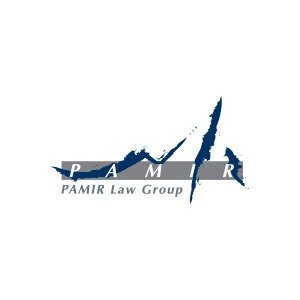Best International Trade Law Lawyers in Taiwan
Share your needs with us, get contacted by law firms.
Free. Takes 2 min.
Or refine your search by selecting a city:
List of the best lawyers in Taiwan
About International Trade Law in Taiwan
International Trade Law in Taiwan encompasses a wide range of regulations and legal frameworks governing the exchange of goods, services, and capital across international borders. It includes both national laws and international agreements to which Taiwan is a party. The legal landscape is shaped by Taiwan's strategic position in global trade, its membership in the World Trade Organization (WTO), and its adherence to various bilateral and multilateral trade agreements. Taiwan's international trade laws aim to promote fair trade, protect local industries, and ensure compliance with global trade standards.
Why You May Need a Lawyer
Legal assistance in International Trade Law may be necessary for a variety of reasons, such as:
- Understanding and complying with trade regulations and customs procedures.
- Resolving disputes related to international contracts and trade agreements.
- Navigating tariffs, non-tariff barriers, and import/export restrictions.
- Managing legal risks related to cross-border transactions and supply chains.
- Ensuring compliance with anti-dumping, countervailing duty, and safeguard measures.
- Dealing with intellectual property rights issues in the context of international trade.
Local Laws Overview
Key aspects of local laws relevant to International Trade Law in Taiwan include:
- Customs Act: Governs the import and export of goods, including clearance procedures, tariffs, and duties.
- Foreign Trade Act: Regulates trade practices and the export and import of strategic high-tech commodities.
- WTO Compliance: Taiwan's trade policies are aligned with WTO agreements, requiring adherence to international trade rules.
- Fair Trade Act: Addresses anti-competitive behavior and ensures fair competition in the market.
- Intellectual Property Rights: Laws that protect IP involved in trade, including patents, trademarks, and copyrights.
Frequently Asked Questions
1. What is the role of the Taiwanese Customs Administration?
The Customs Administration is responsible for enforcing trade regulations, collecting tariffs, and facilitating international trade by ensuring that imports and exports comply with local laws.
2. How can I ensure compliance with Taiwan's trade laws?
Compliance can be ensured by consulting with legal experts in international trade, staying informed about local regulations, and conducting thorough due diligence before engaging in cross-border transactions.
3. What are the common trade barriers in Taiwan?
Common trade barriers include tariffs, quotas, and non-tariff barriers such as import licenses and stringent standards for certain products.
4. How are trade disputes resolved in Taiwan?
Trade disputes can be resolved through negotiation, mediation, or arbitration. In some cases, disputes may be handled through the local courts or international arbitration bodies.
5. What is Taiwan's stance on anti-dumping measures?
Taiwan employs anti-dumping measures to protect local industries from unfair foreign pricing practices, adhering to WTO guidelines and conducting investigations to determine the need for such measures.
6. Are there specific export controls in Taiwan?
Yes, certain strategic and high-tech commodities are subject to export controls to prevent misuse and ensure national security. The Bureau of Foreign Trade oversees these controls.
7. What is the significance of the Foreign Trade Act?
The Foreign Trade Act outlines the standards and procedures for foreign trade operations, aiming to streamline trade processes and encourage sustainable development.
8. How does Taiwan protect intellectual property rights in international trade?
Taiwan has stringent IP laws that comply with international agreements to protect and enforce intellectual property rights in trade, including trademarks, patents, and copyrights.
9. What are the implications of Taiwan's WTO membership?
As a WTO member, Taiwan commits to international trade principles and standards, enhancing its trade practices and dispute resolution processes to promote transparency and fairness.
10. Can foreign businesses directly engage in trade with Taiwan?
Yes, foreign businesses can engage in trade with Taiwan, provided they comply with local trade laws and regulations, which may require licenses or permits for certain products.
Additional Resources
For further assistance, consider the following resources:
- Ministry of Economic Affairs: Overseeing trade development and regulations.
- Customs Administration: Providing information on customs procedures and tariffs.
- Bureau of Foreign Trade: Handling export/import regulations and strategic goods controls.
- Intellectual Property Office: Offering guidance on IP protection and enforcement.
- Trade organizations and chambers of commerce: Providing support and networking opportunities.
Next Steps
If you require legal assistance in International Trade Law, consider taking the following steps:
- Consult with a lawyer specialized in international trade to assess your specific needs.
- Conduct thorough research on local trade regulations and any applicable international agreements.
- Engage with government bodies or trade organizations for guidance and compliance requirements.
- Prepare documentation and evidence to strengthen your legal position in trade-related matters.
- Stay informed about updates and changes in Taiwan's trade laws to ensure ongoing compliance.
Lawzana helps you find the best lawyers and law firms in Taiwan through a curated and pre-screened list of qualified legal professionals. Our platform offers rankings and detailed profiles of attorneys and law firms, allowing you to compare based on practice areas, including International Trade Law, experience, and client feedback.
Each profile includes a description of the firm's areas of practice, client reviews, team members and partners, year of establishment, spoken languages, office locations, contact information, social media presence, and any published articles or resources. Most firms on our platform speak English and are experienced in both local and international legal matters.
Get a quote from top-rated law firms in Taiwan — quickly, securely, and without unnecessary hassle.
Disclaimer:
The information provided on this page is for general informational purposes only and does not constitute legal advice. While we strive to ensure the accuracy and relevance of the content, legal information may change over time, and interpretations of the law can vary. You should always consult with a qualified legal professional for advice specific to your situation.
We disclaim all liability for actions taken or not taken based on the content of this page. If you believe any information is incorrect or outdated, please contact us, and we will review and update it where appropriate.
Browse international trade law law firms by city in Taiwan
Refine your search by selecting a city.
















